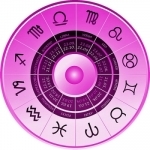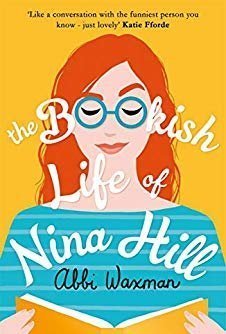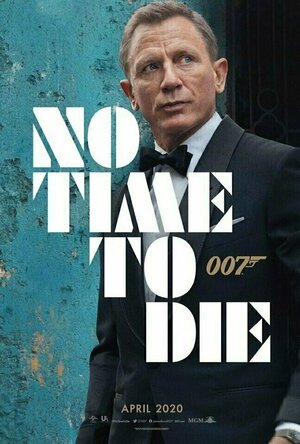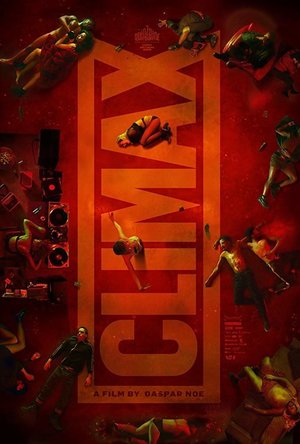Kristy H (1252 KP) rated The Bookish Life of Nina Hill in Books
Aug 5, 2019
I've been wanting to read this for a while, as it sounded totally up my alley, and it so was. It's a major ode to books and bookworms. I felt such an affinity to Nina, and I found the book to be witty and sweet. When I first started it, I was worried it might be a little too cute (the writing style is quirky and different), but Nina and the writing quickly grew on me.
There's so much to love and identify with in this one--about books and bookstores, trivia, family, love, and it deftly handles anxiety and introversion. I'm sure so many readers will find parts of themselves in Nina. I know I did.
"As an only child of a single mother, Nina's natural state was solitude. Growing up, she saw other people with fathers and brothers and sisters, and it looked like fun, but generally, she thought she was better of without a crowd."
I absolutely adored how Nina's finding her new family changed her--it was touching and funny. The cast of characters we meet is hilarious and yet poignant at times. Because Nina's (now late) father was older, she has brothers and sisters of a variety of ages, as well as a charming gay nephew. But watching her come out of her shell, meeting these people, is really lovely. (And brave.)
"Nina worried she liked being alone too much; it was the only time she ever fully relaxed. People were... exhausting. They made her anxious."
Honestly, I loved Nina. The way she interacted with the kids in the various book groups she ran at the bookstore. The way she handled falling for Tom. The way she loved her cat. The realistic way she presented her anxiety. The fact that she was introverted but friendly and kind. (Imagine that? Introverts can be fun, not just evil curmudgeons.) Her deep love of books and her desire to help other people love books, too. I could go on and on.
While you can see how some of this story will play out, it doesn't make it any less fun to read. It's really sweet, funny, and enjoyable. I totally fell for Nina and found it so easy to get caught up in her story and her life. This book was very touching, and I totally teared up at the end, which is rare for me. Definitely recommend this one. 4+ stars.

Jerzy Dudek: A Big Pole in Our Goal - Autobiography
Book
Liverpool Football Club has won trophy after trophy. It has enjoyed success after success....
Mandy and G.D. Burkhead (26 KP) rated Flightless Falcon in Books
May 20, 2018
Afterwards, with a debilitating fear of both the dark and being underground, he’s unable to continue as a miner, yet too unskilled to get any other job. As such, he and his family live in dirt poverty for a decade or so until he finally decides to try stealing what they need instead of earning the money to buy it. Unfortunately he’s just as horrible at this as anything else he tries and ends up in jail for two years.
When he finally gets out, his family’s disappeared, so he adopts a stray dog and lives on the streets for a while. Then one day a guard finds him and tells him, “Hey, I know where your family is, and it’s bad, man, we should go save ’em.” So Tamison saves a fortune teller from some different guards, just for good measure, and the three of them go off to get his family back.
The plot evolves from there – I won’t go into much greater detail because I don’t want to give anything away. And while it’s an entertaining read, it does have its share of snags, though not often or strong enough to derail the overall experience. Still, might was well talk about ’em.
The majority of these moments occur due to the protagonist himself; Tamison’s constant suffering and depression and worthlessness gets a bit irritating after a while (and not a very long while). But you do end up genuinely sympathizing with him, at least for the most part – his self-pitying and constant sobbing are offset, personality-wise, by his intense love and devotion to his family’s welfare (though apparently it still isn’t strong enough for him to suck up his phobia and go back to working in the mines). The end result is a character that, while whiny enough that you want to reach into the pages and smack him, is still believable. The fact that a lot of his misfortune is brought on by bad luck and the overwhelming apathy of the world around him, instead of just his own sad uselessness, also helps save what might have been an otherwise excruciatingly sad-sack protagonist.
But ignore what Miss Reichert and the back cover of the book say – the real star of this story isn’t Tamison, the guard (Dallan), or the fortune teller (Rifkah). It’s the weasely bastard of a con man that Tamison can’t stop running into, the aptly-named Con. This guy’s selfish lack of a moral compass and unwillingness to sugarcoat anything for anyone is a breath of fresh air amidst the hopeful optimism and general boyscout do-goodery of the rest of the starring party, and his quick wit and blunt, sarcastic dialogue are at once impressive and entertaining to read in the circumstances. His back story’s also far more interesting than anything Tamison, Dallan, and Rifkah can come up with.
The story itself also grows past a simple “save some good guys from some bad guys” fetch quest to envelope a degree of political intrigue, subterfuge, loyalty dilemmas, and good ol’ fashion backstabbery. I won’t say anything more past the obvious (there’s a twist, you know there’s gonna be a twist, there’s always a twist) other than to say that the generic good-guy-bad-guy feeling the book’s own synopsis offers slips slowly into a more realistic, more satisfying realm of uncertain grayness that accompanies all conflicts between the world’s two rival governments, the one Tamison belongs to and the one he’s told is harboring his missing family.
Basically, each time you think this book is going to march the plot or one of the characters into Generic Land (and you will occasionally think this multiple times), the direction skews off at the last moment to surprise you. The result is that you end up reading the book in two minds: one for soaking up the story and being entertained, and one with a critical eye turned always on the author’s style, to see where it threatens to stray into unimpressiveness and how it keeps saving itself.
But don’t focus overly much on my criticisms – that’s just how I’ve been trained to talk about good writing, to search for the roughest spots and pick at them in order to see how the whole thing might be polished even more. The reason this book is so easy to criticize is because its weak spots are few and manageable and therefor easy to cover and be done with in the length of a blog post. The overall impression I came away with is still one of a fun, thoughtful, imaginative tale, at times suspenseful, at times moving, and always deeply visual. I didn’t mention the detailed visual descriptions did I? Oh well, I just did. Now you know they’re there.
It’s not going to turn into the next blockbuster fantasy franchise, but if you find it in your used book store, there are less-enjoyable ways to spend your reading time. I recommend Flightless Falcon to anyone who enjoys well-written, character-driven fantasy and doesn’t need it to last through a dozen sequels.
Debbiereadsbook (1669 KP) rated Tamarillo Tart (Southern Lights #2) in Books
May 14, 2020
This is book 2 in the Southern Lights series, but you don't NEED to have read book 1, Powder & Pavlova, before this one. Ethan and Tanner DO pop up, but their story is not necessary for this one to make sense. However, personally, I recommend you DO read it, if only because that was a great read, and you knwo, I said so!
Stefan is a city boy, through and through, but his friend booked this trip, so he was gonna enjoy a trip up the mountian to see some Lord of The Rings scenery. Then his friend pulled out, and Stefan is faced withthe trip on his own, he is here already, so why not? How hard can it be? Cass is the tour guide, and Stefan pushes all kinds of buttons he didn't know needed pushing. How can they keep their hands off each other, when the attraction is scorching hot?
Oh my days, I loved this book!
Loved the snark, the jokes, the witty comments that Stefan throws at Cass, knowing that he is using every single double entrendre he can think of. Stefan KNOWS he wants Cass, but it's at a level he never had before. Cass is, though, a country boy and Stefan a city boy. However being in the country? It does something to Stefan, and it makes him think. Getting Cass off the mountian, when he was injured, was just what Stefan needed to show he wasn't just a pretty boy, he was someone who can get it done. Stefan just needs Cass to see that they would be great together.
Cass is mostly in the closet, and he does, bless him, TRY to fight his attraction to Stefan but it isn't long before he cannot any longer. I mean the whole book takes place over couple days, so it really isn't long but once they give in? OOOOEEEEEE these boys burn HOT!
While that hotness is great, what I particularly loved about this book was the soul-searching that both Stefan and Cass do. Both men are stuck in their lives, and they are *mostly* happy, but they know something is missing. Stefan is more profound in his musings, I must admit, and he does break your heart a couple of times, he really does. I was very impressed with his outward portrayal of being in control when Cass was sick, and how he managed to keep it together till Cass was safe. THEN he lost it.
Loved that Ethan and Tanner (book 1) pop up, even if it was near the end just to kick Stefan out his stupor, but they are referenced a lot by Stefan throughout the book, as it is THEIR relationship, while not jealous, he wants what they have.
Loved Stefan's t-shirt slogans and why he got them in the first place.
I love this series, I especially love the covers that reflect where the book takes place.
5 full and shiny stars
**same worded review will appear elsewhere**
Jeff Lynne recommended Traveling Wilburys, Vol. 1 by The Traveling Wilburys in Music (curated)

My Daily Horoscopes - Free Horoscope of the Day, Love, Health, Career, Money Horoscope for Zodiac Signs in Astrology
Lifestyle and Reference
App
Daily Horoscope is the Most advanced and best horoscope app for iPhone and iPad. Daily Horoscopes...

Weight Loss Assistant
Health & Fitness and Lifestyle
App
Weight Loss Assistant is for women who are eager to know how to lose weight fast and need 100% ready...
Bob Mann (459 KP) rated No Time to Die (2021) in Movies
Oct 7, 2021 (Updated Oct 10, 2021)
Plot Summary:
We pick up immediately after the ending of “Spectre“, with Bond (Daniel Craig) and Madeleine (Léa Seydoux) all loved up and driving off into the sunset together. But their romantic getaway to Italy is rudely broken short by Spectre as elements of Madeleine’s past emerge to haunt the couple.
One element of that past – the horribly disfigured Lyutsifer Safin (Rami Malek) has a plan to make his mark on mankind with a biochemical weapon. And the retired Bond teams with the CIA’s Felix Leiter (a very welcome return of Jeffrey Wright) in a mission to Jamaica to combat it.
Certification:
US: PG-13. UK: 12A.
Talent:
Starring: Daniel Craig, Léa Seydoux, Rami Malek, Lashana Lynch, Ralph Fiennes, Ben Whishaw, Naomie Harris, Ana de Armas.
Directed by: Cary Joji Fukunaga.
Written by: Neal Purvis, Robert Wade, Cary Joji Fukunaga and Phoebe Waller-Bridge. (From a story by Purvis, Wade and Fukunaga).
Positives:
- The script has all the trappings of Bond: exotic locations; great stunts; thrilling action sequences; and more gadgets on show than in recent times. Yet it’s a real character piece too, delving far more into Bond’s emotions. The story running through it with Madeleine is both deep and emotional: something we haven’t seen since the Bond and Tracy romance in OHMSS. (And with Craig’s acting, he manages to pull this off far better than George Lazenby ever could!).
- I found the finale to be magnificent, bold and surprising. We’re back to the megalomaniac owning an island lair, à la Dr No. It even has its own submarine pen (a nod to Austin Power’s “Goldmember” perhaps!?). For me, the production design harks back to the superbly over-the-top Ken Adams creations of the Connery years. There are no sharks with frickin’ laser beams… but there could have been. (The set is a rather obvious redressing of the 007 stage at Pinewood, created of course for the tanker scenes in “The Spy Who Loved Me”. It even re-uses of the gantry level control room.)
- Craig is magnificent in his swan-song performance. There’s a scene, during the extended pre-credits sequence, where he’s sat in his bullet-ridden Aston just glowering for an extended period. I thought this was Craig’s acting at its best. I thought this again in a dramatic showdown scene with Rami Malek. Malek is not given a huge amount to do in the film, But what he does he does wonderfully, particularly in that electrifying scene with Craig.
- The film has a great deal more female empowerment than any previous Bond, with the tell-tale signs (although this might be a sexist presumption) of Phoebe Waller-Bridge on the script. Newcomer Lashana Lynch acquits herself well as the first female 00-agent, getting not just kick-ass action sequences but also her fair share of quips. But stealing the show is Ana de Armas (reunited with Craig of course from “Knives Out“). Her scenes in Cuba are brief but memorable, delivering a delicious mixture of action and comedy that makes you think “cast HER as the next Bond”!
- The music by Hans Zimmer! It’s a glorious soundtrack that pays deference not only to the action style of recent composers, like David Arnold and Thomas Newman, but particularly to the classic scores of John Barry. It actually incorporates not one but two classic themes from “On Her Majesty’s Secret Service”, directly into the film. I’m even starting to warm to the Billie Eilish theme song, although I think it’s too similar in style to the Sam Smith offering from “Spectre“.
- The cinematography from Linus Sandgren (who did “La La Land“) is gorgeous: in turns colourful and vibrant for the Italian and Cuban scenes and cool and blue for the tense Norwegian action sequences.
Negatives:
- My main criticism is not of the film, but of the trailer(s). There are so many of the money shots from the film (particularly from the Matera-based action of the pre-title sequence) included in the trailers that I had an “OK, move on, seen this” attitude. Why did they have to spoil the movie so much? IT’S A NEW BOND… OF COURSE WE’RE GOING TO SEE IT. All you EVER needed for this is a 20-second teaser trailer. Just put white “Bond is Back” text on a black background and the Craig tunnel shot to the camera. Job done. It really infuriates me. B arbara Broccoli and Michael Wilson, PLEASE take note!
- At 163 minutes it’s the longest Bond ever and a bit of a bladder tester. But, having said that, there are no more than a few minutes here and there that I would want to trim. To do more you’d need to cut out whole episodes, and leaving Ana de Armas on the cutting room floor would have been criminal. As the illustrious Mrs Movie Man commented, “I wish they’d bring in the half time Intermission card like they used to do in the old days”. I agree. Everyone would have been a whole lot more comfortable and less fidgety.
Summary Thoughts on “No Time to Die”: Reading the comments on IMDB for the movie, I’m perplexed at the diatribe coming from supposed ‘Bond fans’ on this one. One-star review after one-star review (despite, I note, the overall film getting an overall 7.8/10 at the time of writing). In this regard, I class myself as very much a Bond fan. (My first film at the cinema was the release of “Live and Let Die” in 1973, but I then binge-watched all the other Bond films at the cinema: they used to do repeated double-features in those days). And I thought this was a fabulous Bond film. Full of drama, action, humour and deep-seated emotion. Couldn’t be better for me, and certainly on a par with “Casino Royale” and “Skyfall” for me as my favourite Craig outings.
As the end of the end credits said – “James Bond Will Return”. Who will they cast as the next Bond? And where will they take the story from here? Two of the most intriguing movie questions to take into 2022.
(For the full graphical review and video review, please search for @onemannsmovies. Thanks.)
Gareth von Kallenbach (980 KP) rated Climax (2018) in Movies
Jul 2, 2019
The setting for Noé’s latest tour of human horrors is the final rehearsal of a French dance troupe set to tour internationally. The film begins with the final scene of the movie and the ending credits. Then, just as your confusion has built to appropriate levels, things actually begin with videotaped interviews of all 22 members in an attempt to give you some semblance of character introduction. Shown on an older TV, the screen is surrounded by books and plays focused on ultra-negative philosophical views and subjects such as schizophrenia and suicide. So, despite the rather upbeat and optimistic responses of the prospective dancers, the tone is already being set for the madness that is about to commence.
From there we are taken to the big dance number. A ten-minute single shot involving the entire cast choreographed to 90’s EDM music. While this scene felt a little bit long, it did nearly as much to introduce the characters as the audition tapes shown earlier. Each dancer has a unique style and flair that executes a certain character development. Once the dance is complete it feels like the movie finally begins and the cast starts their post-rehearsal party. The soiree involves dancing (of course), drinking (homemade sangria) and some minor cocaine use. But it mostly consists of quick shots between different cast members taking part in some intergroup gossip. We are treated to one more (non-choreographed) dance scene with each individual showing their talents in a circle of their comrades, then we break again for more conversation. As the party continues on everyone starts to feel a little bit funny. They quickly deduce that the sangria has been spiked with LSD, but cannot determine who drugged them.
And this is where the hour-long journey into hell embarks from. The realization that they have been drugged seems to worry them very little, but does instantly turn them all against each other. The effects of the LSD ramp up rather quickly and as the cast members descend into madness the audience is treated to a myriad of trauma and depravity including: rape, incest, self-mutilation, child electrocution and an attempted abortion via a swift kick to the stomach. None of this should be any surprise to someone familiar with Noé’s work. But if this is your first experience with his particular brand of filmmaking, then be prepared to leave no perverted stone unturned.
One of the most impressive things about this film is how little preparation actually went into it. The entire film was shot in 15 days and edited to completion in only 3 months after that in order to meet the Cannes festival deadline. In addition, it was shot with a mere 5 pages of script. The majority of the film consists of both dancing and psychotic undulations inspired by web videos of people high on crack, ecstasy and acid which were hand-selected by Noé. So, despite the assumed need for structure that comes with extended tracking shots such as these, the whole movie is (surprisingly) mostly ad-libbed. Only the opening dance scene is choreographed with all of the remaining ones being the result of the how the dancers chose to express themselves through dance.
In the end you’ll be left wondering if all of the shock and awe that’s been served to you actually meant something, or if it was simply sensory overload for the sake of itself. And that’s where the movie really falls short. If Noé had meant for any sort of deeper meaning in this film, it was ultimately lost to extreme subtlety. I did my best to find the clever allegory here (French history and culture, biblical stories, etc.) and I admittedly fell short. “Birth is a unique opportunity. Life is an impossible collective. Death is an extraordinary experience,” read three title cards which flash throughout the journey of Climax. Although these sayings are poetic and beautiful, they seem to have little or loose application to the actual storyline.
The strongest feelings in this film are not evoked from any sort of meaning or fable-style lesson. They come from the distress and disgust brought about by the actions of the characters and, more so, the beautifully executed cinematography. Every filming technique meant to cause discomfort is present here including: long tracking shots, inverted imagery, black screen with nonlinear sounds and subliminal images. The application and combination of all of these effects means that much credit for this film should most likely go to Noé’s DP, Benoit Debie.
Fundamentally, the judgement for a Gaspar Noé film exists on a different scale than any other film. And while that concept can be new and exciting when the first shocking film debuts, you quickly realize that subsequent ones have to continue to push the boundaries that were originally broken. Otherwise you run the risk of becoming stale. We may have gotten to that point now with Noé. Climax brings very little new shock to the table for a director who has developed his reputation as a purveyor of wickedness. Those who attend this movie will be looking for him to push their horror to new levels, but will likely end up unfulfilled. Although the lack of a new frontier doesn’t remove all of the value for the film, Noé has made implicit promises through his other work which he has failed to deliver upon with Climax.

Fitness Chef Healthy Food - Calisthenics Meal Plan
Food & Drink and Health & Fitness
App
If you’re training to reach your fitness goals, you’ll know that 80% of your results come from...





